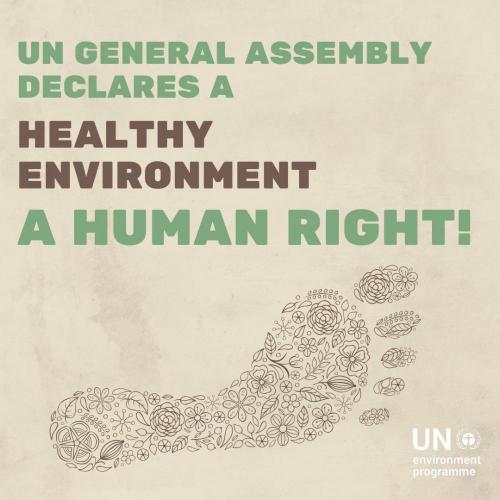The General Assembly resolution follows a flurry of similar legal reforms at the international and national levels. In April, the UN Human Rights Council declared access to a "clean, healthy and sustainable environment" a human right.
Earlier this year, countries in Latin America and the Caribbean pledged more protections for so-called environmental defenders, including indigenous peoples campaigning against logging, mining and oil exploration in protected areas. In 2021, 227 environmental defenders were reportedly killed. And last year, New York state passed a constitutional amendment guaranteeing citizens a right to a "healthful environment."
Those changes come as environmental campaigners increasingly use the law to force countries to address pressing environmental problems like climate change.

In 2019, following a lawsuit by an environmental group, the Netherland's top court ordered the Dutch Government to do more to cut carbon emissions, saying climate change was a direct threat to human rights.
More recently, Brazil's supreme court declared the Paris climate change agreement a human rights treaty, saying the pact should supersede national law. Backers are hopeful the latest General Assembly resolution will eventually lead to more decisions like those.
Virtually all countries have national laws designed to limit pollution, protect plants and animals, and counter climate change. But those rules are not always fully implemented and when they are violated, citizens often struggle to hold governments and companies accountable.

At the national level, declaring a healthy environment a human right would allow people to challenge environmentally destructive policies under human rights legislation, which is well-defined in many countries.
"These resolutions may seem abstract, but they are a catalyst for action, and they empower ordinary people to hold their governments accountable in a way that is very powerful," said David Boyd, the UN Special Rapporteur for Human Rights and the environment, before the vote.
In the days before the General Assembly resolution was passed, Andersen pointed to a similar decree from 2010 that recognized the right to sanitation and clean water. That, she said, spurred countries across the globe to add drinking water protections to their constitutions.
She said the latest resolution has the same historic potential.
"The resolution will trigger environmental action and provide necessary safeguards to people all over the world," said Andersen. “It will help people stand up for their right to breathe clean air, to access safe and sufficient water, healthy food, healthy ecosystems, and non-toxic environments to live, work, study, and play.”













Add new comment